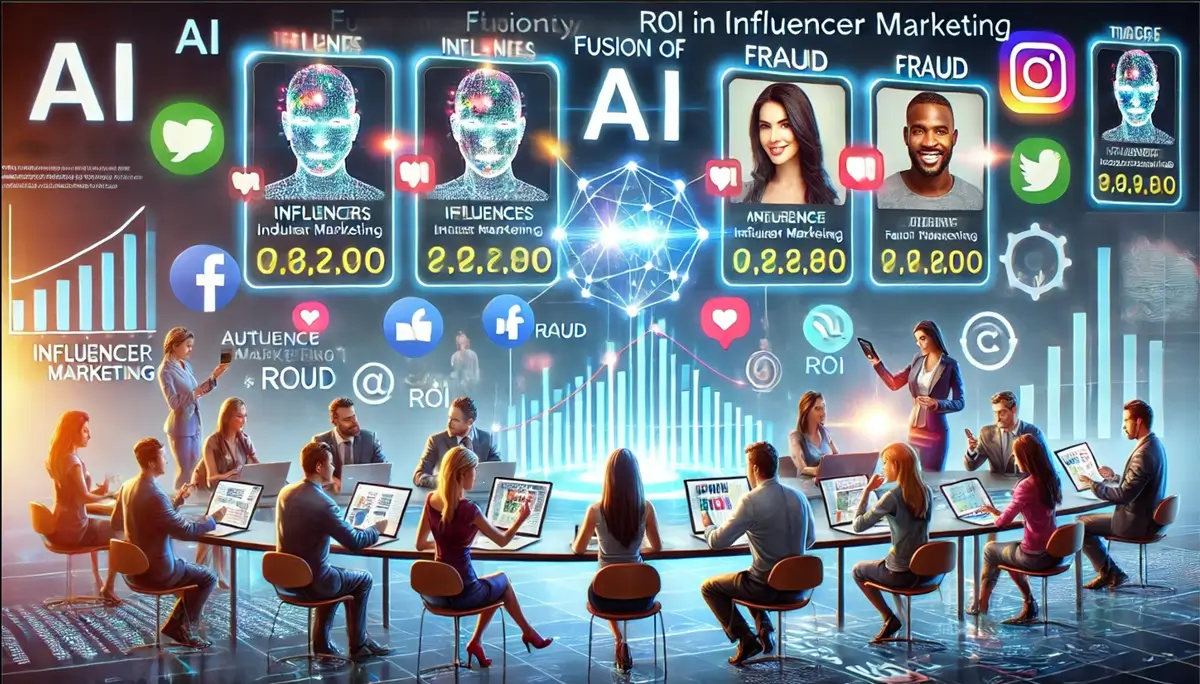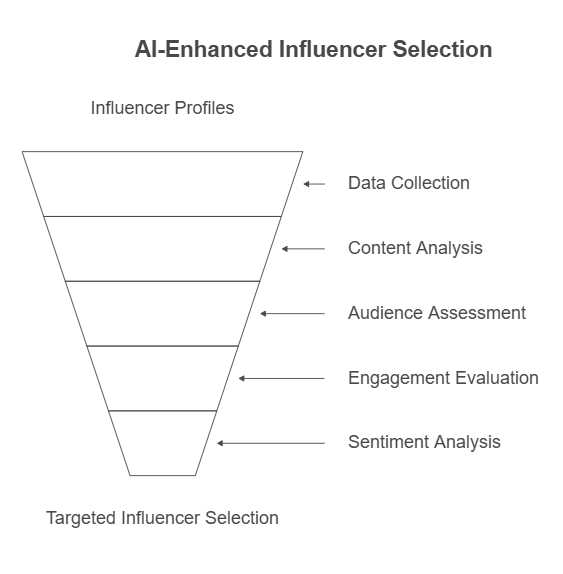Influencer Marketing in the Age of AI: Finding Authenticity and Measuring ROI

Influencer marketing has become a cornerstone of modern brand strategy. The ability to tap into the trust and engagement that influencers have cultivated with their audiences is undeniably powerful.
But as the influencer landscape has exploded in recent years, it has become increasingly difficult to navigate.
Brands face challenges in identifying truly authentic influencers who align with their values, detecting fraudulent activity, and accurately measuring the return on investment (ROI) of their campaigns.
Enter artificial intelligence (AI), a game-changer poised to revolutionize how brands approach influencer marketing.
AI: The New Matchmaker in Influencer Marketing
The sheer volume of influencers across various platforms presents a significant hurdle for brands seeking the perfect partners.
Manually sifting through countless profiles, analyzing their content, and assessing their audience demographics is a time-consuming and often ineffective process.
AI-powered platforms are transforming this landscape by automating the discovery and vetting process.
These platforms leverage machine learning algorithms to analyze vast amounts of data, including an influencer’s content, audience demographics, engagement rates, and even the sentiment expressed in comments.
“AI allows us to move beyond vanity metrics like follower count and delve deeper into the actual impact an influencer has,” explains Furkat Kasimov, a digital marketing expert. “By analyzing audience behavior and engagement patterns, AI can identify influencers whose followers genuinely align with a brand’s target market.”
For example, AI tools can identify influencers whose audiences exhibit a high affinity for specific product categories, interests, or even values.
This allows brands to move beyond simply looking at follower numbers and instead focus on finding influencers whose audiences are genuinely interested in what the brand has to offer.
Unmasking the Fakes: AI as a Fraud Detector
The rise of influencer marketing has unfortunately been accompanied by a surge in fraudulent activity. Fake followers, bots, and engagement pods artificially inflate an influencer’s metrics, misleading brands into investing in partnerships that yield little to no real results. AI is becoming an increasingly powerful weapon in the fight against this fraud.
AI algorithms can detect patterns and anomalies indicative of fake engagement. For instance, they can identify suspiciously rapid follower growth, unusually high engagement rates from accounts with little to no activity, and generic, repetitive comments that are characteristic of bot activity.
By flagging these red flags, AI helps brands avoid partnerships with influencers who have artificially inflated their metrics.
Measuring True Impact: From Vanity Metrics to ROI
Traditionally, measuring the success of influencer campaigns has relied heavily on vanity metrics like likes, comments, and shares.
While these metrics provide some insight into engagement, they don’t necessarily translate into tangible business outcomes. AI is changing the game by enabling more sophisticated and accurate ROI measurements.
AI-powered analytics platforms can track the entire customer journey, from initial exposure to an influencer’s post to eventual purchase.
By integrating with a brand’s website and CRM data, these platforms can attribute conversions and revenue directly to specific influencer campaigns. This allows brands to understand which influencers are driving the most valuable actions and optimize their spending accordingly.
For example, an AI could identify that while Influencer A has fewer followers than Influencer B, their audience converts at a much higher rate, making them a more valuable partner.
The Evolving Role of Influencers and the Future of Authenticity
As AI takes on a more prominent role in influencer marketing, the role of influencers themselves is evolving. Some fear that AI will replace human influencers altogether, but it is more likely it will serve as a powerful tool that enhances their capabilities and helps them connect with brands on a deeper level.
The future of influencer marketing hinges on authenticity. Consumers are increasingly savvy and can easily spot inauthentic endorsements.
AI, by helping brands identify and partner with truly influential individuals who resonate with their target audiences, can play a crucial role in fostering genuine connections.
However, transparency is paramount. As AI becomes more deeply integrated into the selection and evaluation process, brands and influencers alike must be open about its use. Disclosing when AI is used to identify or analyze influencer partnerships will be essential for maintaining trust with consumers.
Final Words
In conclusion, AI is not just a futuristic buzzword in the world of influencer marketing; it’s a present-day reality that is reshaping the industry.
By leveraging AI’s analytical power, brands can navigate the complex influencer landscape with greater confidence, identify authentic partners, combat fraud, and measure the true impact of their campaigns.
As the technology continues to evolve, it promises to usher in a new era of data-driven, transparent, and ultimately, more effective influencer marketing.

